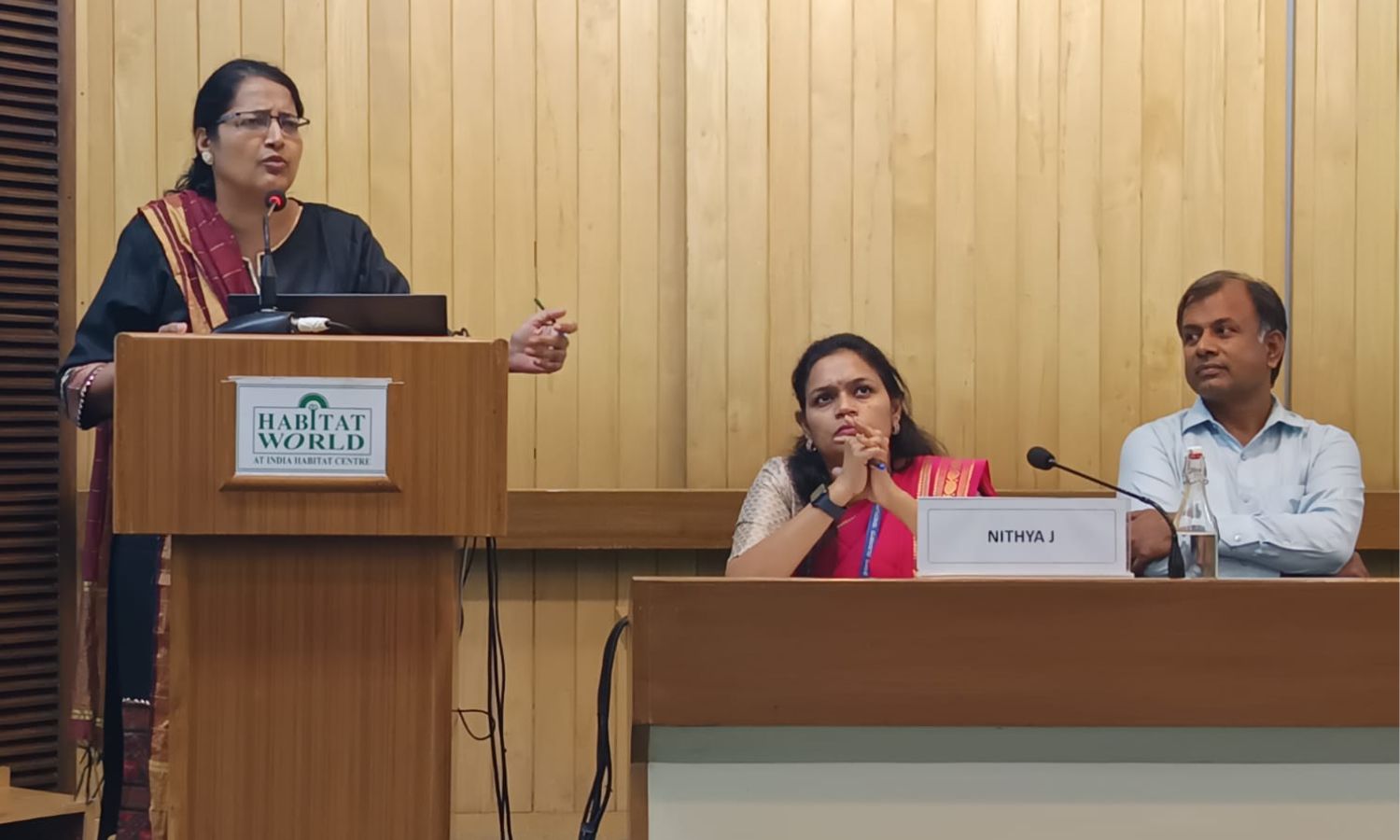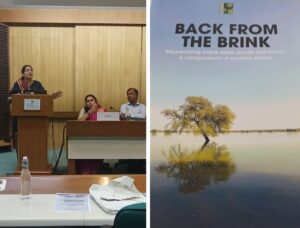Neknampur Lake: Private entity’s sustainable restoration earns recognition from CSE

Hyderabad: The Centre for Science and Environment (CSE) recognised Neknampur lake as a best example of successful sustainable restoration by a private entity during a seminar held on June 26, (Wednesday) at Gulmohar Hall, Lodhi Road in New Delhi.
The seminar marked the release of CSE’s Compendium on Best Programmes of Waterbody Rejuvenation.
Neknampur lake, once a 25-acre expanse choked with garbage, sewage, and water hyacinths, faced serious challenges due to encroachment, siltation, and legacy waste dumping by the Manikonda Municipality. However, since 2016, the Dhruvansh Organisation has been working tirelessly to restore the lake and its biodiversity.
While speaking to the Hyderabad Mail, Madhulika, the founder of Dhruvansh Organization, emphasized the need for a holistic approach. “Sustainable lake restoration goes beyond just cleaning the water. It requires protecting the lake itself, enhancing biodiversity, engaging the community, and reviving the cultural significance of these water bodies,” she said. “This is a long-term endeavor requiring dedicated efforts. Our experience with Neknampur over the past eight years is a testament to that. If it takes a decade to destroy a lake, restoration, especially without a strong national framework, can take much longer, even fifteen years or more.”

The environmentalist called for a more comprehensive approach to lake restoration, emphasizing long-term commitment over short-term investments.
“True lake restoration is more than just cleaning the water. It’s about the entire ecosystem, including the lake’s boundaries. Throwing money at a project for a short period isn’t enough. We’ve seen restored lakes fall back into disrepair due to such short-sighted approaches,” Madhulika explained in her statement.
She pointed to Neknampur Lake as a successful example of sustainable restoration using low-cost technologies. However, she highlighted the importance of public engagement in maintaining these restored areas.
“Public awareness is crucial. People need to understand the importance of protecting these restored lakes and avoiding pollution. Unfortunately, many continue to pollute despite restoration efforts. We need a collective sense of responsibility for our environment,” she said.
Madhulika’s eight-year campaign successfully secured Neknampur Lake’s designation as a sustainable urban Lake, preventing encroachment and potential development. “The lake’s future depends on our continued vigilance,” she acknowledged.
Madhulika stressed the importance of policy changes for effective lake protection. “We urgently need to redefine and strengthen policies for lake conservation,” she concluded.







